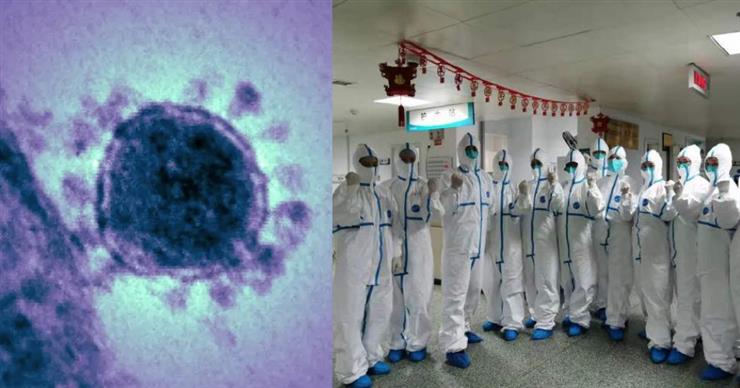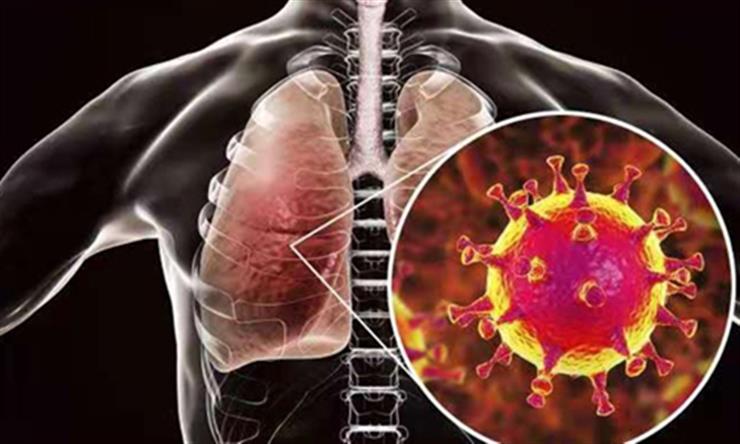Chandigarh: Considering the quantum of panic that Coronavirus has created among masses across the globe, it would not be perhaps wrong to conclude that this virus is becoming an endemic catastrophe. Following its abrupt outbreak in China, many countries including India have started taking precautionary measures to prevent its spread.
China’s National Health Commission said there were 2, 102 new confirmed infections in China as of Friday, bringing the total to 11, 791. Around two dozen other countries have reported more than 130 cases. All the reported deaths from the virus have been in China.
Coronaviruses are zoonotic-meaning, they are transmitted between animals and people. SARS-CoV was transmitted from bats to other animals and humans and MERS-CoV from dromedary camels to humans. Several known coronaviruses are circulating in animals, however, only seven strains have been known to infect humans.
On December 7, the Chinese authorities established the causative virus as a novel coronavirus (2019-nCOV), a new strain that has not been previously identified in humans. Meanwhile, coronavirus spread from Wuhan to other Chinese cities, including Beijing and Shanghai. Beyond China, the virus has spread as far as Thailand, Taiwan, Japan, South Korea and the United States. A mysterious de viral infection began to spread among people of Wuhan, a central city in China, causing a pneumonia-like disease, in December last year.
Deaths from coronavirus have caused panic among the countries whose nationals are living in China or are on business or official assignments. The epidemic has led to mass evacuations of foreign citizens as world airlines halt flights, and risks exacerbating a slowdown in growth in the world’s second-largest economy.

Wuhan's fighting team and the virus
Most international cases have been in people who had recently travelled to or were visiting from Hubei province, the epicentre of the outbreak. Hubei has been under a virtual quarantine for the last week, with roads sealed off and public transport shut down. Elsewhere, Chinese authorities placed growing restrictions on travel and business.
Nearly 10, 000 flights have been suspended since the outbreak of the coronavirus in China, according to travel and data analytics firm Cirium. Many nations have put on special charter flights to repatriate citizens from China.
The US Centers for Diseases Control and Prevention (CDC) identified seafood market at Wuhan suspected to be at the centre of the epidemic.
What is the 2019-Novel Coronavirus?
The 2019-Novel Coronavirus is a new strain of coronavirus that has not been previously identified in human beings. Coronaviruses are a large family of viruses that cause mild to moderate upper-respiratory tract illnesses, like the common cold. But some coronaviruses such as MERS-CoV and SARS-CoV can cause severe Acute Respiratory Syndrome (SARS), respectively.
Coronavirus are zoonotic-meaning, they are transmitted between animals and people. SARS-CoV was transmitted from bats to other animals and humans and MERS-CoV from dromedary camels to humans. Several known coronaviruses are circulating in animals, however, only seven strains have been known to infect humans.
Coronavirus primary infects the upper respiratory and gastrointestinal tracts of mammals and birds.
What are the symptoms?
The viruses can cause include fever, cough, shortness of breath and breathing difficulties. In more severe cases, infection can cause pneumonia, severe acute respiratory syndrome kidney failure and even death.
How does it spread?
Coronaviruses can spread from human contact with animals. When it comes to human-to-human transmission of the viruses, often it happens when someone comes in contact with the infected person’s secretion. A cough, sneeze or handshake can spread the virus from the infected person to others. Transmission can also happen if you touch objects handled by the infect person and then go on to touch your mouth, nose or eyes.
Chinese authorities are still not sure of the origin of the outbreak—that is, it is unclear from which animal the 2019-nCoV transmitted to humans. The source may have been animals sold at the market. Officials confirmed that the new strain can also spread by person-to-person contact.

Coronavirus primary infects the upper respiratory
What is the treatment?
There is no vaccine yet against 2019-nCoV. Experts say there are not any treatments as well and the infection can only be allowed to run in course.
Doctors may prescribe a pain or fever medicine to relieve symptoms and treat the health complications that may arose after the infection.
What one should do to prevent getting infected by the virus?
Avoid close contact with anyone showing symptoms of respiratory illness such as coughing and sneezing, wash hands regularly, cover your mouth and nose when you cough, ensure that meat and eggs you eat are thoroughly cooked. human contact with animals. When it comes to human-to-human transmission of the viruses, often it happens when someone comes in contact with the infected person’s secretion. A cough, sneeze or handshake can spread the virus from the infected person to others. Transmission can also happen if you touch objects handled by the infect person and then go on to touch your mouth, nose or eyes.
Chinese authorities are still not sure of the origin of the outbreak—that is, it is unclear from which animal the 2019-nCoV transmitted to humans. The source may have been animals sold at the market. Officials confirmed that the new strain can also spread by person-to-person contact.
What is the treatment?
There is no vaccine yet against 2019-nCoV. Experts say there are not any treatments as well and the infection can only be allowed to run in course.
Doctors may prescribe a pain or fever medicine to relieve symptoms and treat the health complications that may arise after the infection.
What one should do to prevent getting infected by the virus?
Avoid close contact with anyone showing symptoms of respiratory illness such as coughing and sneezing, wash hands regularly, cover your mouth and nose when you cough, ensure that meat and eggs you eat are thoroughly cooked.